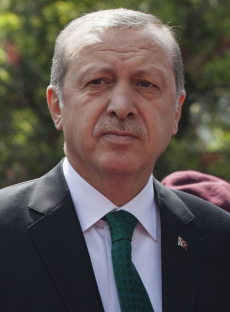
On July 15th this year a small group of people in the Turkish military decided to launch a coup against the current Turkish regime, led by Recep Tayyip Erdogan. Over the last five years Ergodan, who was prime minister of Turkey from 2002 to 2014 and has been president of the country since then, has been ruling the country in an increasingly authoritarian manner.
He has been launching constant attacks on freedom of speech, most of all in relation to the freedom of the press. In the last two or three years in particular he has been cracking down on newspapers and journalists who have been critical of his leadership, often going as far as shutting down or taking over such papers and arresting the journalists in question.
And along with this Maajid Nawaz writes: “Article 299 of the Turkish penal code—barely used in the past—states that anybody insulting the head of state can be jailed for up to four years. Under Erdogan, between August 2014 and March 2015 alone, 236 people were investigated for "insulting the head of state.””
It is also thought that he has been centralising power in the hands of the president – which just happens to be him at this point in time – despite the fact that the role of president in turkey was only supposed to be a ceremonial role, probably not dissimilar to the role of the Queen in our country.
Added to this, he was known to be an active Islamist (someone who believes that their interpretation of Islam should be imposed on all citizens of a country via the state) during his youth and this ideology of his has seeped into his leadership of what used to be considered a very secular country in its political outlook. For example, in 2014 in a report by the Jerusalem Post, he is quoted as having said to a group of women at a summit held by the Women and Democracy Association that:
“Our religion [Islam] has defined a position for women [in society]: motherhood […]You cannot explain this to feminists because they don’t accept the concept of motherhood.”
He also said that, “[Women's] characters, habits and physiques are different... You cannot place a mother breastfeeding her baby on an equal footing with men […] You cannot bring women and men into equal positions; that is against nature because their nature is different.”
He has also been known to describe his relationship with democracy as like being on a bus. When it takes him to where he wants get to, he gets off. In spite of this though, in his early years as Prime Minister he managed to help engineer an extraordinary economic recovery in Turkey, as well as suppress the “habitually undemocratic Turkish Military back to base camp” – Maajid Nawaz’s words. In the early noughties, many in Europe were campaigning for the increasingly prosperous Turkey to join the European Union, including the British Government.
We’ve seen how dramatically perceptions of Turkey have changed in the west in recent years, as during Britain’s referendum on the European Union Leave campaigners used the possibility of Turkey joining the EU in the coming years as a key reason to leave it.
Image: By Cancillería del Ecuador [CC BY-SA 2.0 (http://creativecommons.org/licenses/by-sa/2.0)], via Wikimedia Commons

0 Comment:
Be the first one to comment on this article.